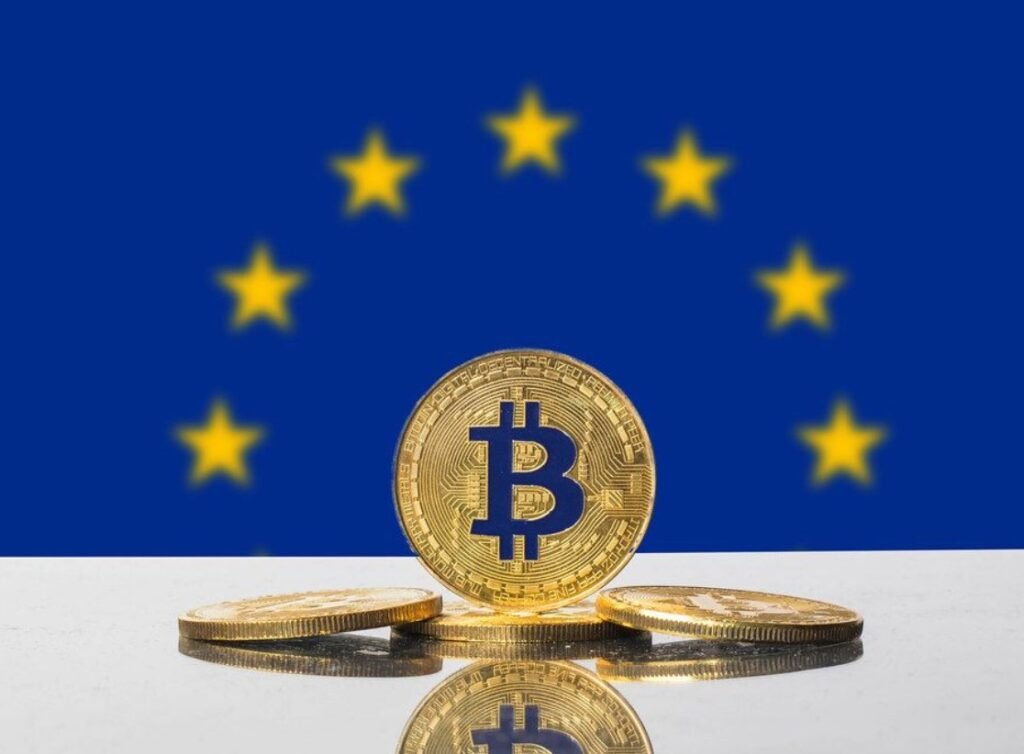As the European Union’s parliamentary elections unfold, Bitcoin finds itself in a precarious position, influenced by political shifts and economic indicators. The cryptocurrency market, known for its volatility, is particularly sensitive to such events, which could herald changes in regulatory frameworks and impact investor sentiment.
The EU Elections: A Decisive Moment for Crypto Regulation
The EU elections are a pivotal moment for the future of cryptocurrency regulation. With the implementation of the Markets in Crypto Assets (MiCA) legislation on the horizon, the composition of the new European Parliament will be instrumental in shaping the regulatory landscape. The MiCA framework aims to establish a harmonized regulatory regime for crypto assets across the EU, including stringent rules for stablecoins.

The elections, which commenced on June 6 and are set to conclude by June 9, have the potential to bring in a fresh wave of MEPs who may be more receptive to innovative technologies like blockchain and cryptocurrency. The industry has been closely monitoring the elections, as the outcome could significantly influence the regulatory environment for digital assets.
Market Movements: Analyzing Bitcoin’s Response
In the wake of the elections, Bitcoin’s market behavior has been a subject of intense scrutiny. The cryptocurrency has experienced fluctuations, reflecting the market’s anticipation of the election results and their implications for the regulatory framework. The industry is particularly interested in the stance of newly elected MEPs and their influence on the future direction of crypto policies.
The market’s response to the EU elections is compounded by economic indicators such as payroll data, which provide insights into the broader economic health and influence investor sentiment. As Bitcoin continues to mature, its correlation with traditional financial markets becomes more pronounced, making it susceptible to shifts in economic conditions.
Looking Ahead: The Intersection of Politics and Cryptocurrency
The intersection of politics and cryptocurrency is becoming increasingly significant as governments around the world grapple with the challenges and opportunities presented by digital assets. The EU elections serve as a reminder of the political dimensions of cryptocurrency regulation. The decisions made by the newly elected MEPs will have long-lasting effects on the industry, potentially shaping the trajectory of innovation and growth in the crypto space.





















